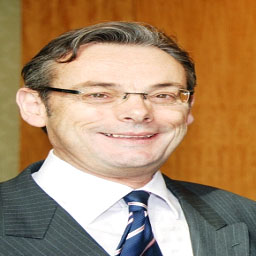|
|
Master of ping-ping diplomacy
Dec 14th 2011, 9:35 by G.E. | BEIJING

IT IS not often that an ambassador to China who leaves his post chooses to hold forth—on the record, and on Chinese soil—about the ups and downs of his former job. This is true for at least two reasons. First, Chinese government officials here are not exactly thick-skinned (nor short of memory). Second, those with future business here, whether diplomatic or more remunerative, tend to say nice things or nothing at all.
Few diplomats understand that better than Geoff Raby, who from 2007 until this summer served as Australia’s ambassador to China. He now runs an eponymous consultancy in Beijing that trades on the connections he established over a career that took him to China in the 1980s, back to Canberra and back again. Little wonder that Mr Raby would hesitate to tread on those relationships in Beijing last night, when he addressed a gathering of foreign correspondents who sought to induce him into undiplomatic utterances.
Mr Raby, though outspoken, has a diplomat’s flair for strategic candour. The most undiplomatic broadside he delivered while he was ambassador was targeted at his own boss, Kevin Rudd—the Mandarin-speaking minister of foreign affairs whose tenure as prime minister was marked by rocky relations with China. Speaking earlier this year to a gathering of Australian executives in Beijing, Mr Raby observed, among a series of remarks that were clearly aimed at Mr Rudd, that “to speak Chinese is not to know China”.
Mr Rudd was prime minister during what Mr Raby described last night as the annus horribilis of Sino-Australian relations, the year of 2009. That was a time in which China was baring its fangs diplomatically, on the heels of ethnically charged riots in the northwest region of Xinjiang that summer and in Tibet a year earlier. Mr Raby recalled how Chinese diplomats ham-fistedly objected to the screening at a Melbourne film festival of a documentary about Rebiya Kadeer, an exiled Uighur activist whom Chinese authorities had tried to make out as the leader of a separatist movement. Ms Kadeer herself was invited to attend the screening, much to Chinese consternation.
“The Chinese consulate was just amazingly inept,” Mr Raby said. “They did such a good job—I mean no one’s heard of Uighurs in Australia, no one had heard of Rebiya Kadeer—they did such a good job that the organisers had to rent a much bigger hall to fit everyone in who wanted to come and see the film.” Mr Raby said that Chinese diplomats have shown more sophistication on sensitive matters since, but he noted that the big decisions about how to engage with other countries are never in their hands.
So it was with the most troubling Sino-Australian episode of 2009: the arrest of Stern Hu, an Australian citizen and then the de facto head of China business for Rio Tinto, a mining giant. Mr Hu was held initially on suspicion of stealing state secrets. Eventually he was convicted of bribery and other offences, taking a sentence of 10 years’ imprisonment. Many observers saw the episode as a case of politically selective prosecution, partly due to China’s frustration with the rising price of iron ore, and partly as retribution for Rio Tinto’s abandonment of a multi-billion-dollar investment deal with the Aluminium Corporation of China, or Chinalco.
Mr Raby, without referring specifically to the facts of Mr Hu’s case, did not dispute questioners’ assertions that there was politics behind its prosecution.
“You can draw your own conclusions from the evidence, but you’re right that a lot of people give and receive gifts, and some get pinged and some don’t, and I think to my mind that’s the nub of the issue,” Mr Raby said. In response to an earlier question on the Hu case, Mr Raby had noted an inherent defect of China’s justice system: its lack of independence from politics.
“Here we know there’s a reason why someone’s pinged for corruption or someone’s not pinged for corruption and usually there’s something sits behind it, so when there’s an anti-corruption campaign in Guangdong or Shenzhen, then it’s a fair bet that that’s somehow tied to elite politics, because why ping Person A and not B? And I think that is the context in which law is practiced here,” Mr Raby said. “There is rule by law here…But there’s no rule of law. There’s nothing that sits above the political processes of the [top leadership].”
Mr Raby said foreign governments can only hope to push patiently, persistently and diplomatically for “incremental” progress on its justice system and human rights. “I don’t think megaphone diplomacy gets you anywhere in this space.”
Mr Raby noted that during his four years as ambassador China’s leverage in world affairs has increased dramatically, as it became, for example, Australia’s number-one trading partner. He said that China’s economic power, combined with its authoritarian system, pose an historic diplomatic challenge as China’s ambitions—including its military ambitions—continue to grow.
“We have never seen in world history, with Nazi Germany perhaps to one side, a global economic power that has stood so far apart from the international norms of social and political organisation, so it’s something different. It really, really is different,” Mr Raby said. He later assured me that when he uses this line in speeches, he throws in a mention of Nazi Germany to pre-empt the nitpickers of history, not as a point of comparison to China. That would be rather undiplomatic indeed. |
|